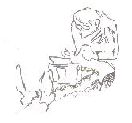Endorsements
 For The Rapids
Yogesh Patel raids diverse areas of experience and many literatures to make a âjazz of poetryâ. These poems travel with a Freedom Pass and a crow-sharp eye through Greek, Indian, African and Chinese myth, via the error page and cryptocurrency, all the way to the milk round and disrupted ecologies. They play on connections and disconnections, acting as improvisations that bounce sound and light into the broken corners of the world.
-Imtiaz Dharker
Yogesh Patelâs poems are pieced together as fragments of a range of cultures threaded on a sensibility that is philosophical and universalist. The poems take you to places of high tension then turn away to face others as if the world itself were restless and constantly on the move. It is like being engaged in an overheard dialogue with language.      Â
-George Szirtes
In The Rapids Yogesh Patel unveils a vigorous new poetic form, which looks set to give writers and readers pleasure for years to come. What doubles the pleasure is the way these poems bring the human and natural worlds in together on a single, generous breath.Â
-Fiona Sampson
To come across Yogesh Patelâs poetry is like a door opening to the fresh light at the end of a dark corridor. There are poets of the East and poets of the West, but in this collection, Patel shows that he is a poet of both sensibilities. In this way, the subtleties of Indian poetic form and tone are gently entwined with those of the English tradition to form a new, delicate, and original utterance. Daring, sophisticated, and playful - Patelâs poetry is a calligraphy of the soul made visible. It is a rare achievement.Â
-Steven OâBrien, Editor: The London Magazine
For Swimming with Whales
Yogesh Patel is Jonah, Ishmael, Queequeg and Moby Dick himself: he knows what is owed to whales, how mighty and how vulnerable they are, and what we owe them by way of nourishment and light. His whales are enormous symbols swimming all the seas of the world and defining us as they go.
Michael Schmidt OBE FRSL, General Editor, PN Review
With marvelous twists and turns of language and breath, Yogesh Patel's book length meditation draws us into the life and death of the young whale lost in the Thames river, a poignant icon for the migrant self. The voice moves through wit and sparks of joy, through bitterness and loss, rising into a fine balance -- the metamorphic life of the speaker pitched to the rhythmic harmonies of poetic language. 'Come swim with me/ swim the lithe language' the poet tells us and we follow him across the dark yet clarified borders of the past, through the difficult present, into the fluid zone of the
imagination. Swimming with the Whales is relevant to our lives in a world of nationalisms gone awry, where our common humanity is so often ignored.
Meena Alexander, Guggenheim Fellow in Poetry Distinguished Professor of English, City University of New York Â
Our endangered world is celebrated by Patel in poems that hop, skip and transform the mundane into a magical adventure. No
subject is too distant for Patelâs keen eye and leviathan powers.
Daljit Nagra
Swimming With Whales leads us into a liquid, liminal language-space. âThe whale dives as a questionâ: a curved gesture uniting air, water and a land we cannot see. In the moment of reading, the reader moves in the shape of this curve, towards meanings on the other side of words.
Zata Banks, Founder-Director: PoetryFilm
For Bottled Ganges
Yogesh Patel observes both the mundane and the unexpected, and is fearless in writing what he observes. In his poem, 'Optimism', he writes that 'In the middle of Kurukshetra / Arjun is scratching his head off'! These are poems by an 'outsider' - always a useful perspective in the world of poetry. Patel writes of his alienation 'In the country I was born', in the motherland, and in the land whose citizenship he has embraced, and in so many other contexts. With his typical brand of irony, he ends with the observation that: 'Even though / I am a Freeman of the city of London / "They" truly have the Freedom of Speech'. In 'Neither Here Nor There' he comments that truth can be 'As ugly as they come', but no one can shut up this irrepressible poet. His words are important, so let us read, absorb and enjoy.
Dr Debjani Chatterjee, MBEÂ
My copy of the Bottled Ganges arrived safely. I had a quick read and enjoyed it greatly. I liked The Values, of course, but also God and the Translator and A Dialogue. I look forward to reading others.
The Lord (Prof) Bhikhu Parekh of Kingston upon HullÂ
